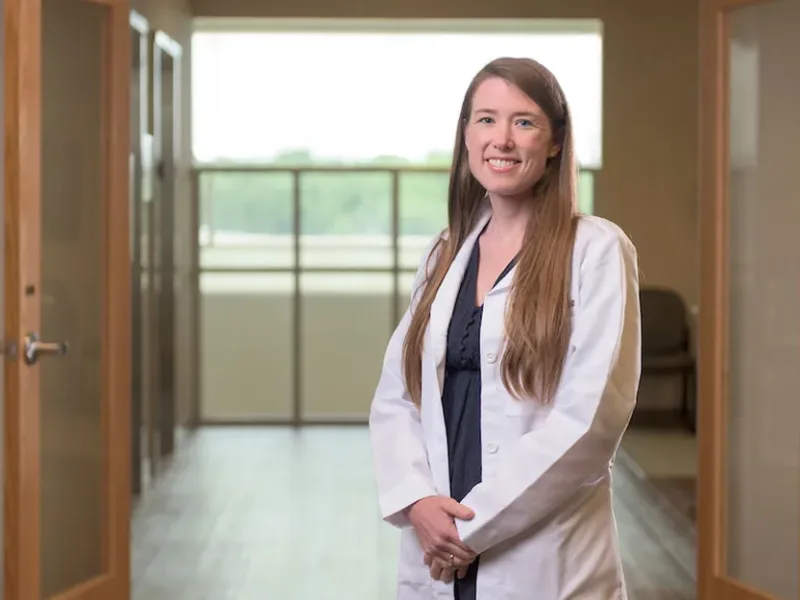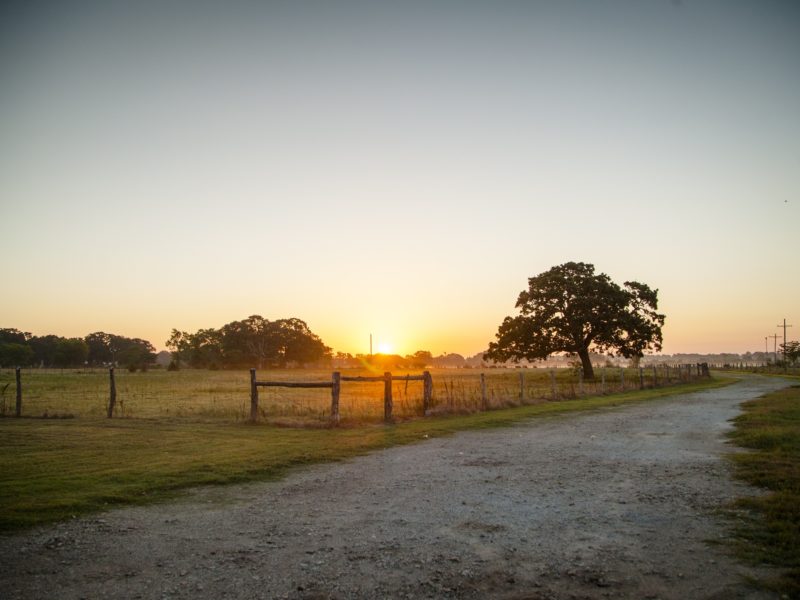Texas A&M Health Launches Rural Engagement Program

The Texas A&M University Health Science Center (Texas A&M Health) is stepping up its support for rural health care in Texas by launching the Rural Engagement Program. This new initiative combines efforts from the Texas A&M schools of medicine and nursing and the Rural and Community Health Institute to expand the health care workforce and bolster the viability of health care organizations to better serve rural Texans.
Texas boasts the nation’s largest rural population, with more than 4 million residents. However, the state also has the most rural hospitals at risk of closure, according to the Center for Quality and Payment Reform, and only 10 percent of Texas physicians practice in rural areas. Counties without a hospital and those that have been impacted by hospital closures rely heavily on clinics to fill care needs, but those clinics often lack sufficient funding or staffing resources. Declining access has become a crisis for many rural communities.
Texas A&M Health has long been committed to addressing rural health care challenges. Now, thanks to funding from the 88th Texas Legislature, the Texas A&M Health Rural Engagement Program is consolidating and amplifying these efforts to expand support for rural health care organizations and professionals. The new program brings together resources from the Rural and Community Health Institute (RCHI) — which has 20 years of experience supporting rural communities — with the School of Medicine and School of Nursing to provide a coordinated, interdisciplinary and innovative response to rural health care challenges.
Tailoring Solutions For Unique Challenges
“Although there are common challenges facing rural health care, each rural community in Texas is unique, with specific needs,” said Dr. Kia Parsi, executive director of the Rural and Community Health Institute. “By integrating the resources of the Texas A&M School of Medicine, School of Nursing and RCHI, the Rural Engagement Program can provide a robust menu of support capabilities and assistance that best fits the needs of each community.”
The Rural Engagement Program plans to provide support to help rural health care organizations keep their doors open and strengthen their services. Participating organizations are supported by a dedicated one-on-one regional technical assistance coordinator along with virtual and on-site facilitation. Through a comprehensive needs analysis, the Rural Engagement Program works alongside health care organizations in the program to formulate and implement sustainable action plans to improve their financial performance, increase operational efficiencies, improve quality of care, expand workforce capabilities, provide leadership support and staff training opportunities, and assist with transition to newer, value-based care payment models that incentivize higher quality of care.
The program is also aimed at addressing the critical shortage of health care professionals in underserved areas. With additional funding and improved coordination, the Texas A&M medical and nursing schools are committed to providing more than just clinical experiences for students. Through innovative partnerships with local rural communities, health care facilities, advanced practitioners and school districts, the program offers a unique approach to rural clinical experiences.
Strengthening Rural Medicine
Through the Rural Engagement Program, the School of Medicine collaborates closely with local communities to design tailored experiences that allow medical students to fully integrate into the fabric of rural life. This includes opportunities to learn from local practitioners, actively participate in community initiatives, and collaborate with school districts on health education programs. The immersive experiences aim to provide a holistic understanding of rural health care challenges and opportunities, fostering a sense of connection between students and the communities they serve.
The program also engages K-12 student through initiatives like the Mini Med Camp, Youth Adventure Program (YAP) and a spectrum of health care career exploration activities, including virtual Zoom sessions with health care professionals, medical and nursing students, and medical school faculty. These initiatives aim to inspire the next generation of health care professionals and bridge the gap between rural students and health care career opportunities.
In addition, the program’s inaugural Rural Practitioners of Texas Conference, hosted by the School of Medicine in Fredericksburg March 22-23, is tailored for health care professionals serving rural areas. The conference will provide a platform for practitioners to share insights, explore strategies, and foster collaboration in addressing the unique health care needs of rural communities across Texas. For more details and to register for this conference, visit www.ruralpractitionersoftexas.org.
“I take immense pride in the work being done by the Texas A&M Health Rural Engagement Program and the role the School of Medicine undertakes,” said Dr. Amy Waer, dean of the School of Medicine. “Over the past several years, our rural medicine program has played a pivotal role in advancing health care, particularly in developing our physician workforce. The Rural Engagement Program will enable us to make even more meaningful contributions to the well-being of our rural communities.“
Fortifying Rural Nursing
The School of Nursing is supporting growth of the rural nursing workforce in numerous ways. It will award $350,000 in scholarships for registered nurses working in rural areas to obtain their Bachelor of Science in Nursing or an advanced nursing degree or certificate. These programs of study position rural nurses to better serve their communities with expertise in needed areas like primary care, behavioral health and more. The School of Nursing also plans to integrate rural-specific curriculum into its degree and certificate programs, develop a rural fellowship for nurse practitioners and seek certification as a Rural Health Clinic for its nurse-led clinics.
“All Texans deserve access to high quality health care, and the next generation of Aggie nurses must be well-prepared to care for the rural communities that need them most,” said Leann Horsley, dean of the School of Nursing. “Nursing’s participation in the Rural Engagement Program signifies our continued commitment to serving the underserved and addressing the complex challenges facing health care in a mostly rural state.”
In coordination with the Texas A&M Health Telehealth Institute, the Rural Engagement Program is also working on expanding health care organizations’ telehealth capabilities. The Telehealth Institute will enhance the availability of behavioral health care by extending access to patients’ homes, local clinics and hospitals over the next two years, and will lay the groundwork for other tele-specialty services in our rural communities. The institute will also foster innovations with the School of Nursing in expanded clinical care and telehealth training.
“The health care challenges are real for rural Texas,” Parsi said. “Legislative support for the Texas A&M Health Rural Engagement Program will enable RCHI, the School of Medicine and the School of Nursing to make significant strides in providing the right support and resources to ensure rural Texans receive greater access to high quality health care.”
This article by Lindsey Hendrix originally appeared on Vital Record.





